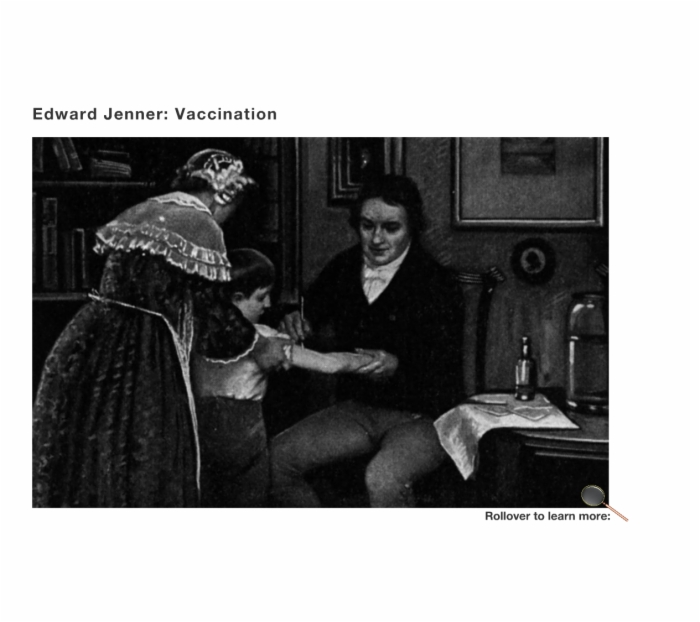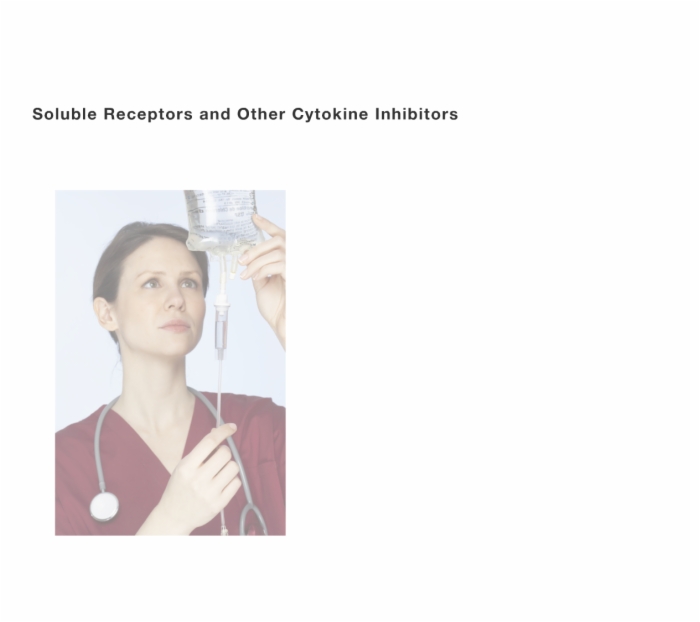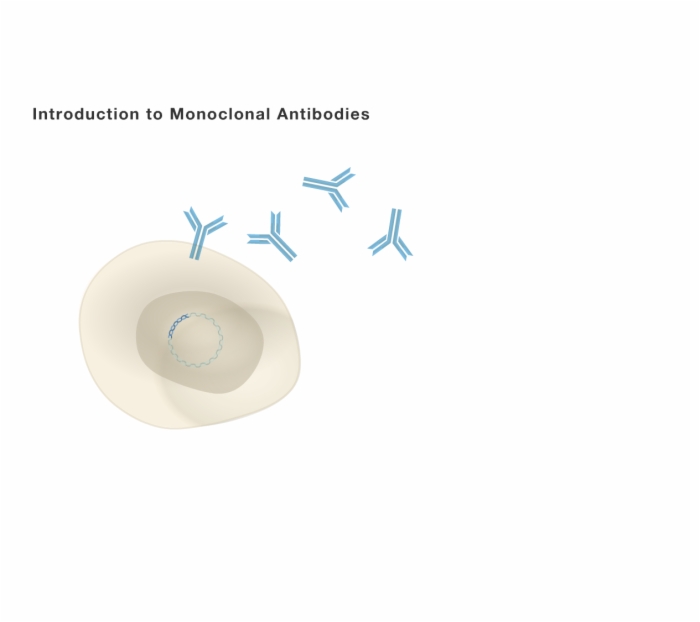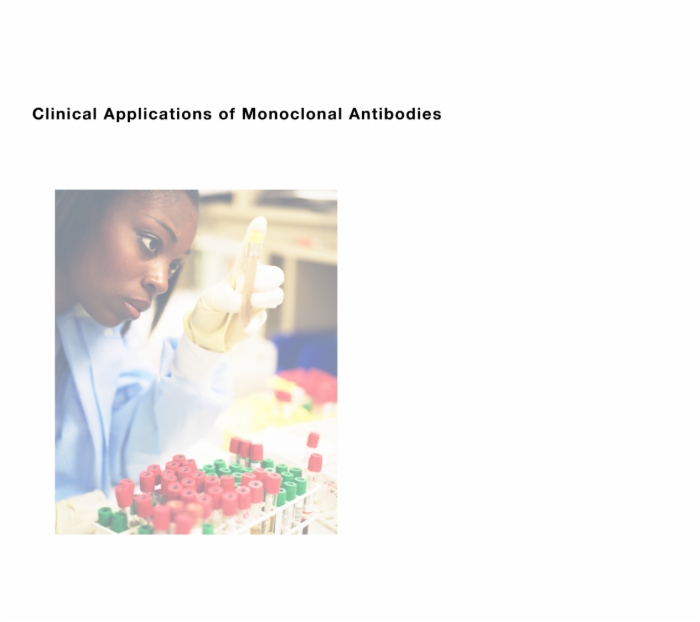SMi Source lesson Immunology: Therapeutic Immunology has the following microlearning topics
1. Introduction to Therapeutic Immunology


2. Traditional Immunosuppressive Therapies


3. Soluble Receptors and Other Cytokine Inhibitors


4. Introduction to Monoclonal Antibodies


5. Clinical Applications of Monoclonal Antibodies


Lesson Immunology: Therapeutic Immunology teaches these concepts
Therapeutic Immunology, Introduction to Therapeutic Immunology, Edward Jenner: Vaccination
Therapeutic Immunology, Introduction to Therapeutic Immunology, Vaccination Successes
Therapeutic Immunology, Introduction to Therapeutic Immunology, Therapeutic Immunology: Immunodiagnostics and Immunotherapy
Therapeutic Immunology, Introduction to Therapeutic Immunology, Immunotherapy
Therapeutic Immunology, Introduction to Therapeutic Immunology, Traditional Immunosuppressive Agents
Therapeutic Immunology, Introduction to Therapeutic Immunology, Limitations of Traditional Immunosuppressive Drugs
Therapeutic Immunology, Introduction to Therapeutic Immunology, Biologic therapies
Therapeutic Immunology, Introduction to Therapeutic Immunology,Categories of Biologic Therapy
Lesson Immunology: Therapeutic Immunology addresses these key points
Ever since 1796, when Edward Jenner discovered the smallpox vaccine:
- Researchers have sought to harness the body’s natural ability to fight disease.
One of the success stories in public health has been:
- The development of vaccines, which have reduced preventable infectious diseases to an all-time low.
Public policies of vaccination have led to:
- The eradication of small pox
- The near elimination of polio.
New vaccines are showing promise of eliminating many more diseases.
Researchers have developed new approaches that manipulate immune functions beyond vaccination, for a wide range of medical uses:
- Treating autoimmune disorders and cancer
- Detecting, diagnosing, and monitoring disease
These various applications of the immune response can be generally referred to as immunotherapy and immunodiagnostics.
Immunotherapy: Medical treatment involving the use of immune cells or their products to fight infection and disease.
- Suppression of unwanted responses
- Stimulation of protective responses
- Modifications of the immune response
Immunotherapy: Targeting
- Traditional immunosuppressive therapies (less targeted)
- Biologic therapies (more highly targeted)
Traditional immunosuppressive agents:
- Corticosteroids
- Cytotoxic agents
- Fungal/bacterial derivatives
Limitations of traditional immunosuppressive drugs:
- Infection
- Malignancy
- Nephrotoxicity
- Hepatotoxicity
- Bone marrow suppression
- Endocrine dysfunction
Attention has turned to the development of biologic therapies that use the body's natural immune functions to fight infection and disease or to protect the body from side effects of treatment.
Biologic therapies:
- Biologic response modifiers (BRMs)
- Recombinant technology (e.g., bioengineered drug products)
- Includes: antibodies, cytokines, and protein fragments
- Applications: transplant rejection, autoimmune diseases, inflammatory conditions, cancer, immunodiagnostics…
Categories of biologic therapy:
- Molecular structure or composition
- Monoclonal antibodies (mAbs)
- Fusion proteins
- Mechanism of action
- Cytokine receptor therapies
- Soluble receptor therapies
Lesson Immunology: Therapeutic Immunology is built from these main references. Log into SMi Source for a complete list and details.
Janeway CA, et al. Immunobiology. 6th ed. 2005
NCI. Biological therapies for cancer: questions and answers. 2005
LLS. Information Resource Center 2004
Ingelfinger JR, et al. N Engl J Med. 2005
Parham P. The Immune System. 2nd ed. 2005
Briggs JD. Immunol Lett. 1991: 29(1-2):89-94 Page 89.
Molecular Mechanisms of Immunosuppressive Drugs and Their Importance in Optimal Clinical Outcomes (added) Medscape Today
Katzung BG. Basic & Clinical Pharmacology. 9th ed. 2004
Ezzell C. Sci Am. 2001
Reichert JM, et al. Nature Biotechnol. 2005
Dorland’s Medical Dictionary. 30th ed. 2004
Choy EHS, et al. N Eng J Med. 2001
Enbrel Prescribing Information, 2006
Pier GB, et al., Immunology, Infection, and Immunity. 2004
Krause I, et al. Am J Med. 2003
Toussirot E, et al. Expert Opin Pharmacother 2004
Aggarwal BB. Ann Rheum Dis 2000
Lesson Immunology: Therapeutic Immunology introduces and defines these terms
IgG = Immunoglobulin-G
TNF-α = Tumor Necrosis Factor Alpha